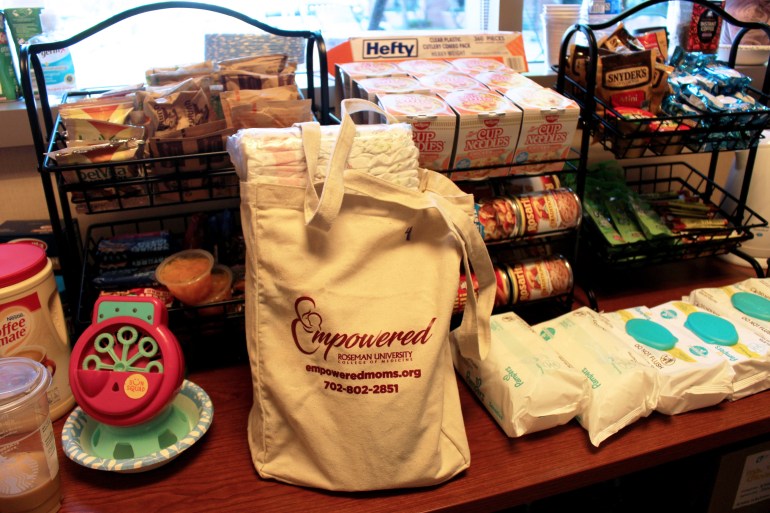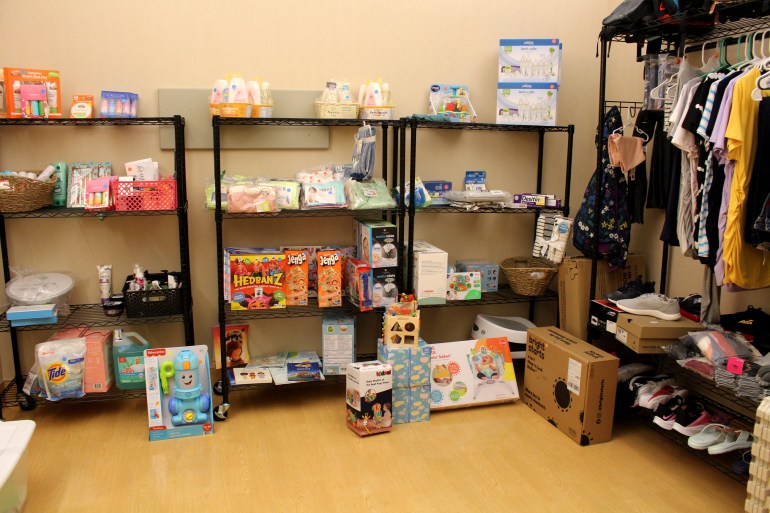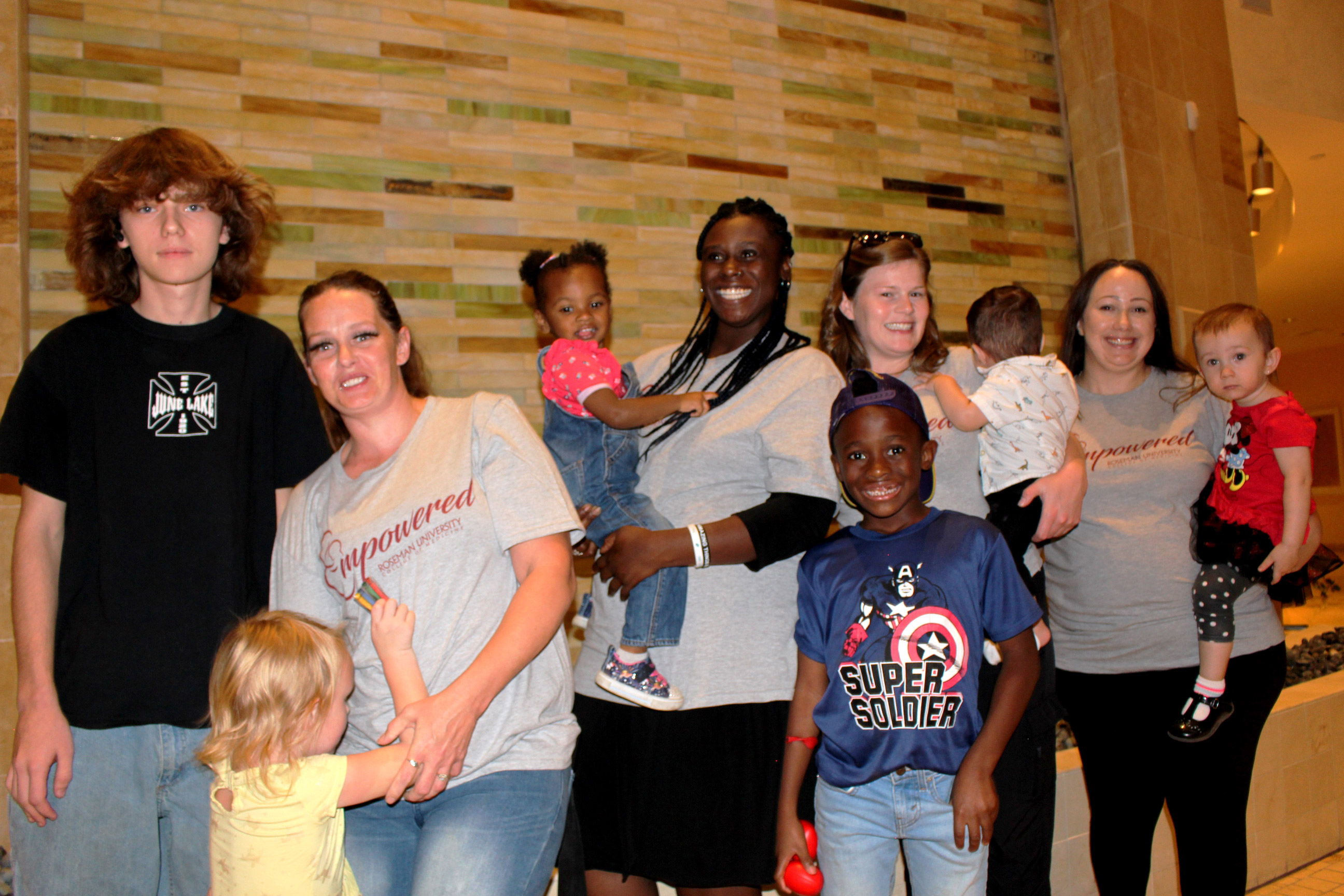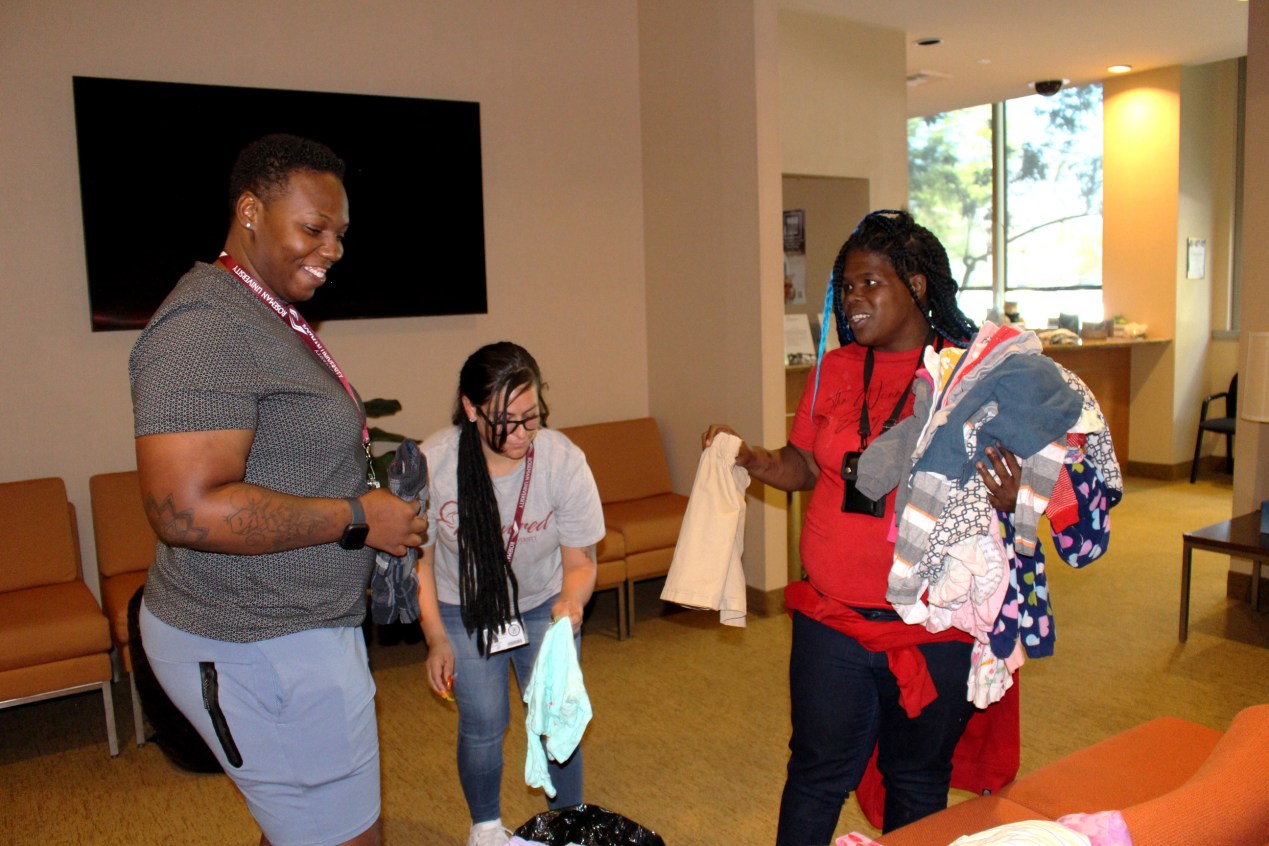LAS VEGAS — When Andria Peterson began working as a clinical pharmacist in the pediatric and neonatal intensive care units at St. Rose Dominican Hospital in Henderson, Nevada, in 2009, she witnessed the devastating effects the opioid crisis had on the hospital’s youngest patients.
She recalled vividly one baby who stayed in the NICU for 90 days with neonatal abstinence syndrome, a form of withdrawal, because his mother had used substances while pregnant.
The mother came in every day, Peterson said. She took three buses to get to the hospital to see her baby. Peterson watched her sing to him some days and read to him on others.
“I saw in the NICU the love that she had for that baby,” Peterson said. “When it came down to it, she lost custody.”
At the time, Peterson said, she felt more could be done to help people like that mother. That’s why, in 2018, she founded Empowered, a program that provides services for pregnant and postpartum women who have a history of opioid or stimulant use or are currently using drugs.
The program helps about 100 women at any given time, Peterson said. Pregnancy often motivates people to seek treatment for substance use, she said. Yet significant barriers stand in the way of those who want care, even as national rates of fatal drug overdoses during and shortly after pregnancy continue to rise. In addition to the risk of overdose, substance use during pregnancy can result in premature birth, low birth weight, and sudden infant death syndrome.


A federal initiative seeking to combat those overdoses is distributing millions of dollars to states to help fund and expand programs like Empowered. Six states will receive grant funding from the Substance Abuse and Mental Health Services Administration to increase access to treatment during and after pregnancy. The Nevada Health and Human Services Department is distributing the state’s portion of that funding, about $900,000 annually for up to three years, to help the Empowered program expand into northern Nevada, including by establishing an office in Reno and sending mobile staff into nearby rural communities.
Other states are trying to spread the federal funds to maximize reach. State officials in Montana have awarded their state’s latest $900,000 grant to a handful of organizations since first receiving a pool of funding in 2020. Connecticut, Iowa, Maryland, and South Carolina will also receive $900,000 each.
Officials hope the financial boosts will help tamp down the rise in overdoses.
Deaths from drug overdoses hit record highs in 2021, according to the Centers for Disease Control and Prevention. More recent preliminary data shows that the rates of fatal drug overdoses have continued to rise since.
Deaths in pregnant and postpartum people have also increased. Homicides, suicides, and drug overdoses are the leading causes of pregnancy-related death.
Fatal overdoses among pregnant and postpartum people increased by approximately 81% from 2017 to 2020, according to a 2022 study. Of 7,642 reported deaths related to pregnancy during those years, 1,249 were overdoses. Rates of pregnancy-related opioid overdose deaths had already more than doubled from 2007 to 2016.
Meanwhile, mothers and mothers-to-be in rural parts of the country, some of the hardest hit by the opioid crisis, face greater barriers to care because of fewer treatment facilities specializing in pregnant and postpartum people in their communities and fewer providers who can prescribe buprenorphine, a medication used to treat opioid addiction.
Data distinguishing the rates of overdose mortality among pregnant and postpartum people in urban and rural areas is hard to come by, but studies have found higher rates of neonatal opioid withdrawal syndrome in rural parts of the country. Women in rural areas also died at higher rates from drug overdoses in 2020 compared with women in urban areas, while the overall rate and the rate among men were greater in urban areas.
In Nevada, a 2022 maternal mortality and severe maternal morbidity report found that most of the state’s pregnancy-related deaths, 78%, happened in Clark County, home to Las Vegas and two-thirds of the state’s population. However, the state’s rural counties had the highest pregnancy-related death rate — 179.5 per 100,000 live births — while Clark County’s was 123 per 100,000 live births.
During a recent event hosted by Empowered, four mothers recounted their struggles with addiction while pregnant. “It was never my intention to actually have a drug addiction,” said a mother named Amani. “I’ve always wanted to get out of the cycle of relapsing and drug usage.”

Amani, who asked to be identified only by her first name for fear of stigma associated with using drugs while pregnant or after giving birth, said she found the support she needed to treat her addiction in 2021. That’s when she began seeking help at Empowered.
Substance use while pregnant or postpartum is “incredibly stigmatizing,” said Emilie Bruzelius, a postdoctoral fellow in the Department of Epidemiology at Columbia University’s Mailman School of Public Health and author of a study of trends in drug overdose mortality during and after pregnancy. The stigma and fear of interacting with child welfare or law enforcement agencies prevents people from seeking help, she said.
A Rand Corp. study found that states with punitive policies toward mothers with substance use disorders have more cases of neonatal abstinence syndrome. Nevada was among them.
Researchers have found that, in addition to facing fear of punishment, many women don’t have access to treatment during and after pregnancy because few outpatient centers specialize in treating mothers.
Both Nevada and Montana had fewer than one treatment facility with specialized programs for pregnant and postpartum women per 1,000 reproductive-age women with substance use disorders, with Montana ranking in the lowest quintile.
One Health, a community health center covering Montana’s sprawling southeastern plains, is using the newly awarded federal money to train peer support specialists as doulas, professionals specialized in childbirth who can provide support throughout pregnancy and after.
Megkian Doyle, who directs the center’s community-based work, said in one case a survivor of sex trafficking who was drugged by her abusers worked with a recovery doula to prepare for the potential triggers of being exposed to medical workers or needing an IV. In another, a mom in stable recovery from addiction was able to keep her baby when hospital staffers called child protective services because she already had a safety plan with her doula and the agency.
After birth, recovery doulas visit families daily for two weeks, “the window when overdose, relapse, and suicide is happening,” Doyle said. The workers, in their peer support role, can continue helping clients for years.
While doula care, rarely covered by insurance, is unaffordable for many, Medicaid typically covers peer support care. As of late September, 37 states and Washington, D.C., had extended Medicaid benefits to cover care for 12 months postpartum. Montana and Nevada have approved plans to do so. Health centers in similarly rural states have taken note. The program’s latest cohort of recovery doulas includes five peer support specialists from Utah.
With its trauma-informed approach, the Nevada-based Empowered program takes a different tack.
The program focuses on meeting its participants’ most pressing need, which varies depending on the person. Some people need help getting government-issued identification so they can access other social services, including aid from food pantries, said Peterson, the founder and executive director. Others may need safe housing above all.
Empowered is not abstinence-based, meaning its participants do not lose access to services if they relapse or use substances while seeking help. Because some participants may be actively using drugs, the Empowered office is also a distribution site for the overdose reversal medication naloxone and test strips that detect fentanyl, a powerful synthetic opioid that has contributed to jumps in fatal overdose rates in recent years. The program’s staff also provide education about the effects drugs have on an unborn baby during pregnancy.
Being able to be honest with Empowered staff made a difference for Amani.
“I can’t tell you how many times I’ve tripped and fallen but tried to get back up and fallen again,” she said.
The goal is not only to stabilize participants’ lives but to make them resilient — whatever that may look like for each individual. For many, that includes having stable housing, food security, job security, and custody of their children.
To her, Amani said, the Empowered program means love, support, and not being alone.
“I wouldn’t be here, literally, without them,” she said.







